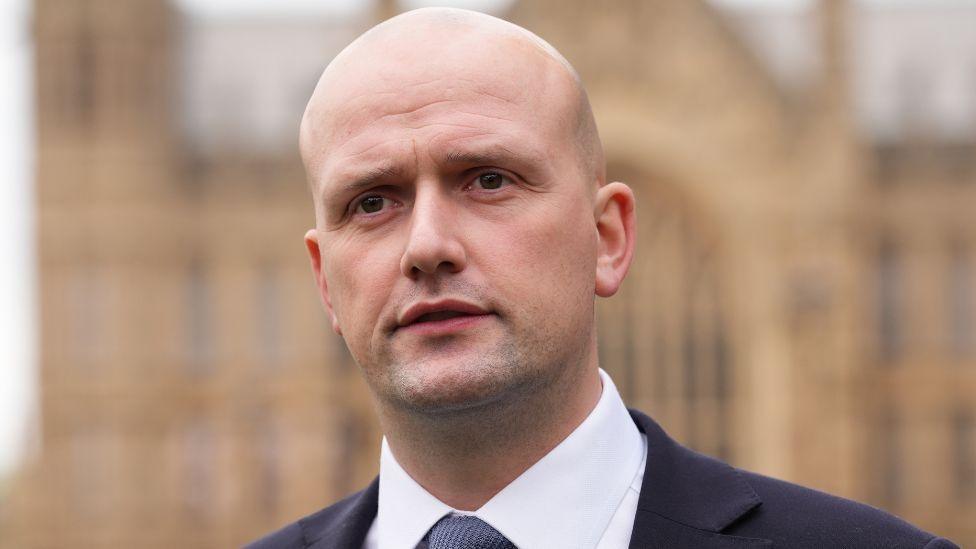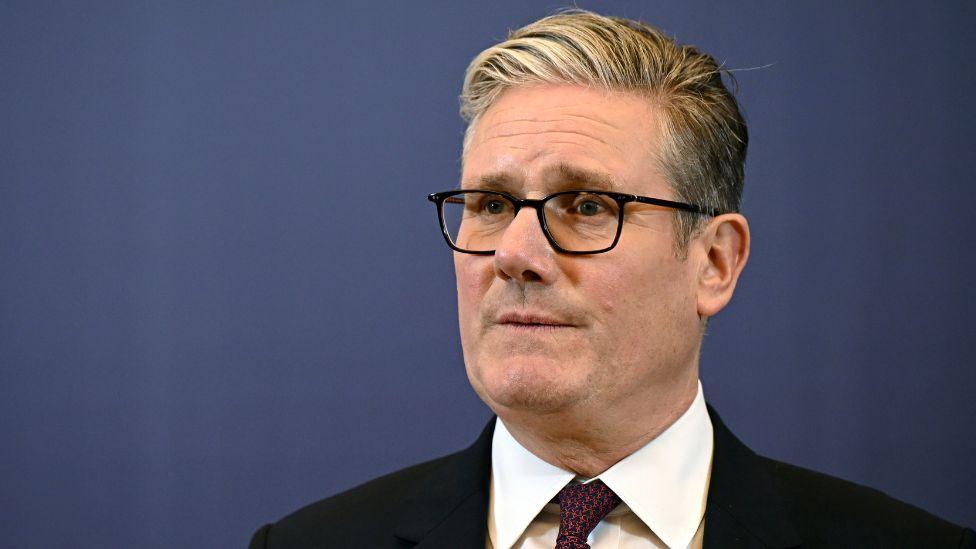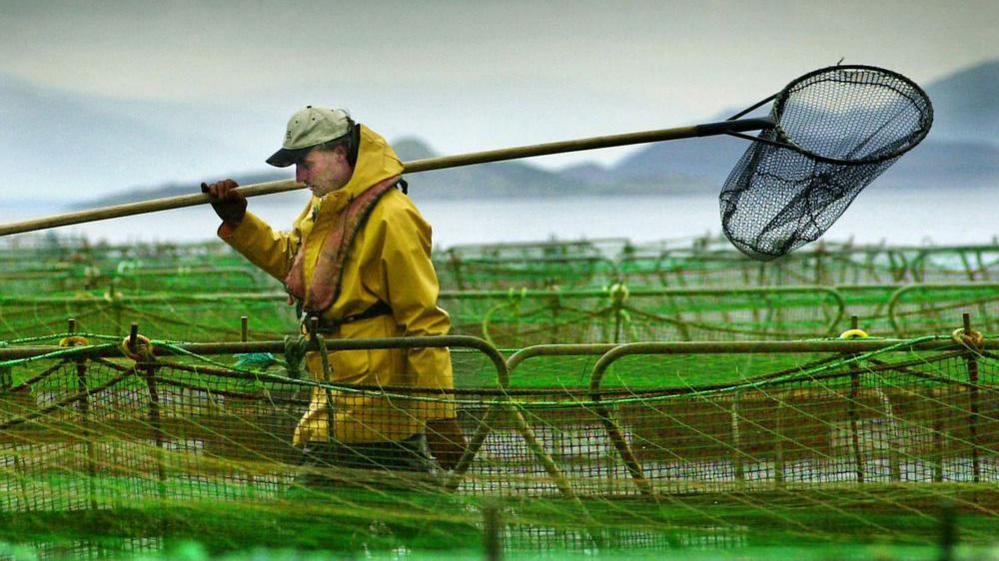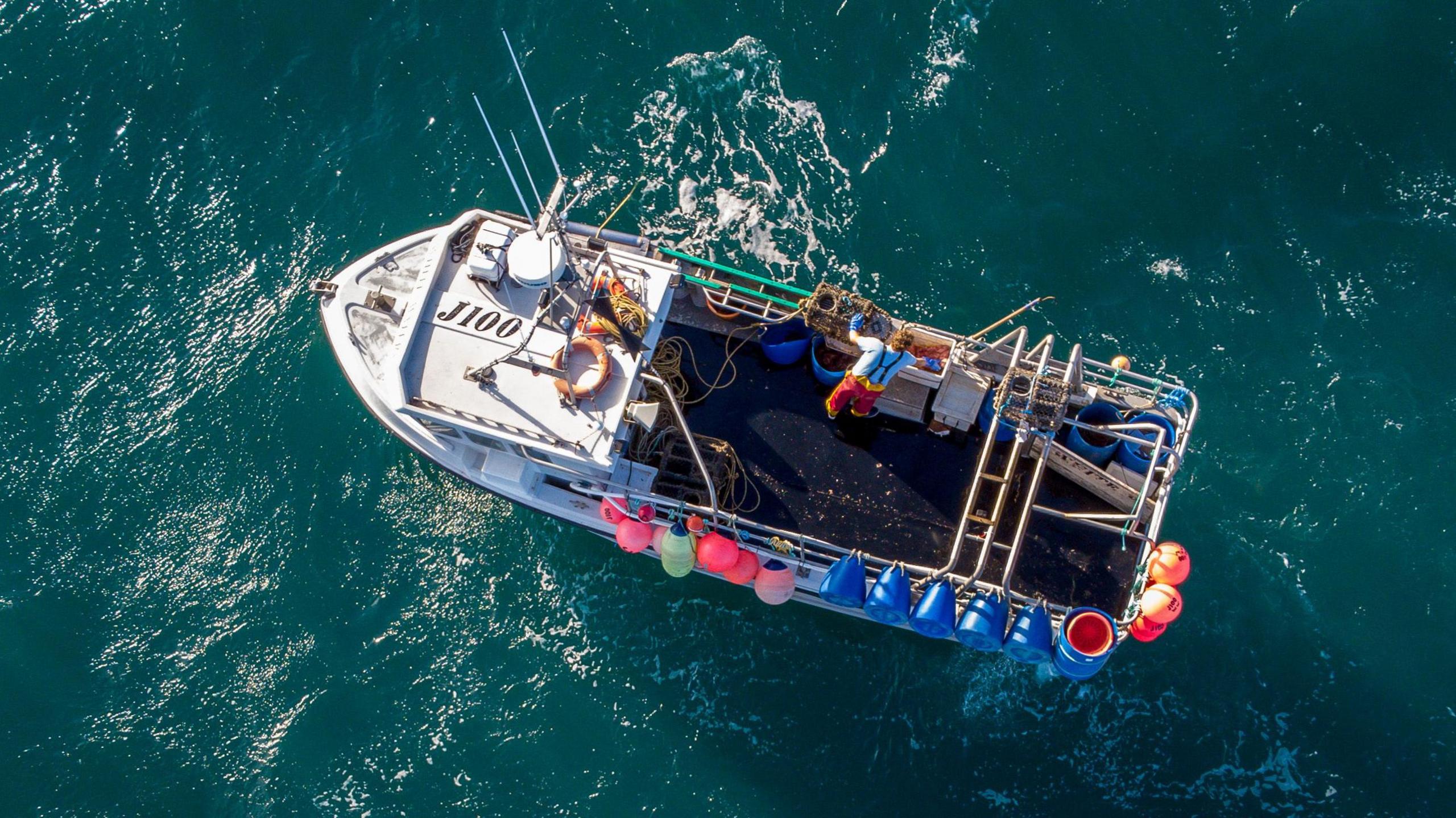Flynn to raise Brexit 'folly' with Bank of England boss

Stephen Flynn has urged the UK government to agree a new trade deal with the EU
- Published
SNP Westminster leader Stephen Flynn has said he will raise the "folly" of Brexit during a meeting with the governor of the Bank of England.
Ahead of talks with Andrew Bailey, Flynn also called on the UK government to renegotiate its trade agreement with the EU.
It came after Chancellor Rachel Reeves said the deal struck under the previous Conservative administration had caused long-term damage to the economy.
Her government insists its new deal with the EU will help bring down the cost of living.
Speaking ahead of his talks with Mr Bailey, Flynn took aim at Reform leader Nigel Farage for "boasting" about a meeting with the governor last month.
Mr Bailey also met Liberal Democrat leader Sir Ed Davey recently.
Farage criticism
Flynn said he would raise the "folly" of Brexit and "the economic impact that's had upon the UK, which has led to budget cuts right across these isles".
He added: "And who's the man responsible for that? Nigel Farage.
"So who knows, myself and the governor of the Bank of England might have an interesting conversation in that context and based upon his comments of late in respect to Brexit, we'll probably agree."
Bailey said at the weekend that Brexit would have a negative effect on the UK's economic growth "for the foreseeable future", though he added that there would be "at least partial rebalancing" in the longer term.
The bank boss has previously said that stronger ties with the EU could "minimise negative effects" of Brexit on trade.
Flynn also urged the UK government to renegotiate a better deal with the EU.
Prime Minister Sir Keir Starmer announced a fresh agreement with the bloc in May covering fishing, trade, defence and energy.

Sir Keir Starmer has rejected calls to renegotiate a new customs union with the EU
Flynn urged the UK government to re-open talks to negotiate closer ties to the EU.
He accused Reeves of "trying to treat the public like mugs", pointing out that she voted to trigger the Article 50 process that led to the country leaving the EU.
"If she truly wants to recognise the damage of Brexit, there's only one thing that she can do, and that's to try and enter into as extensive negotiations as she possibly can with the European Union to put it right," the SNP Westminster leader said.
"Rachel Reeves is indicating that we're right in this regard, but it's not good enough to be right or good enough for the chancellor to recognise the error of her own ways.
"She needs to do something about it and she's the only person who can do something about it."
At Prime Minister's Questions, Sir Keir rejected calls from the Liberal Democrats to negotiate a new UK-EU customs union.
'More money in pockets'
Responding to Flynn, a spokesman for the UK government pointed to forecasts from the Office for Budget Responsibility, which has said leaving the EU will reduce the UK's economy GDP by about 4% in the long term.
He pointed to new trade agreements with the EU, US and India, and added: "Our new deal with our closest neighbours is good for bills, good for our borders and good for jobs, paving the way for cheaper food on shelves, less burden on our businesses, more opportunities for young people and more money in the pockets of working people."
Reform UK has been asked to comment.
Scotland voted to stay in the EU by 62% to 38% in the 2016 Brexit referendum, while the UK as a whole voted to Leave.
Some Scottish businesses, particularly the fishing industry, have been critical of the UK's latest trade agreement with the EU.
It extends existing access for EU boats in British waters for 12 years, in exchange for reduced checks and restrictions on UK food exports.
The Labour government also launched a £360m fund, external to help support fishermen over the 12-year period.
However, the Scottish Fishermen's Federation has described the deal as "disastrous" and said an offer of £28m for Scottish fishermen from the fund was "close to derisory".
- Published19 May

- Published19 May
